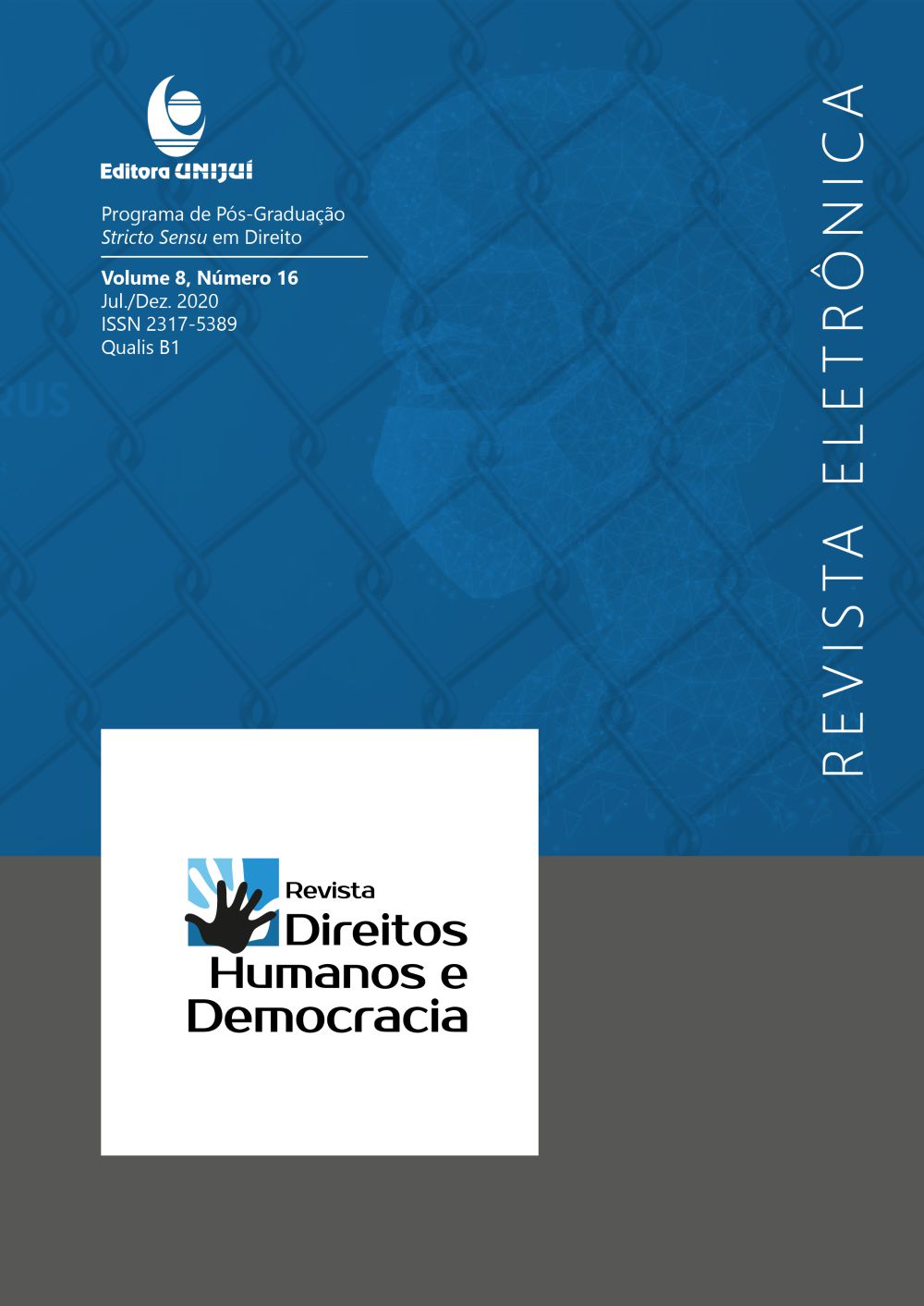DIREITO À MORTE DIGNA
DOI:
https://doi.org/10.21527/2317-5389.2020.16.122-137Abstract
O presente artigo tem como objeto de discussão “o direito à morte digna”. Busca refletir acerca de questões culturais da sociedade brasileira, herdadas do pensamento ocidental judaico-cristão, vistas como entrave ao avanço social e jurídico de temas considerados tabu, como a morte. Mostra que o Direito à vida é um direito fundamental, mas não é um direito absoluto, posto que nenhum direito o é ou pode ser assim considerado. Por fim, defende a ideia de que a vida pertence a cada um de nós, não ao Estado, não à sociedade e, como o Estado brasileiro é laico, não há como, logicamente, sustentar a tese de que ninguém teria o direito de dispor da própria vida. A conclusão é que assim como ninguém pode ser condenado a morrer, também não pode ser condenado a viver uma existência sem sentido.
Downloads
Published
How to Cite
Issue
Section
License
By publishing in the Revista Direitos Humanos e Democracia, authors agree to the following terms:
Articles are licensed under the Creative Commons Atribuição 4.0 Internacional (CC BY 4.0), which allows:
Share — copy and redistribute the material in any medium or format;
Adapt — remix, transform, and build upon the material for any purpose, including commercial use.
These permissions are irrevocable, provided the following terms are respected:
Attribution — authors must be properly credited, with a link to the license and indication of any modifications made;
No additional restrictions — no legal or technological measures may be applied that restrict the use permitted by the license.
Notices:
The license does not apply to elements in the public domain or covered by legal exceptions.
The license does not grant all rights required for specific uses (e.g., image rights, privacy, or moral rights).
The journal is not responsible for opinions expressed in the articles, which remain the sole responsibility of the authors. The Editor, with the support of the Editorial Committee, reserves the right to suggest or request modifications when necessary.
Only original scientific articles presenting research results of interest, not previously published or simultaneously submitted to another journal with the same purpose, will be accepted.
References to trademarks or specific products are intended solely for identification purposes and do not imply any promotional endorsement by the authors or the journal.
License Agreement: Authors retain copyright over their articles and grant the Revista Direitos Humanos e Democracia the right of first publication.













